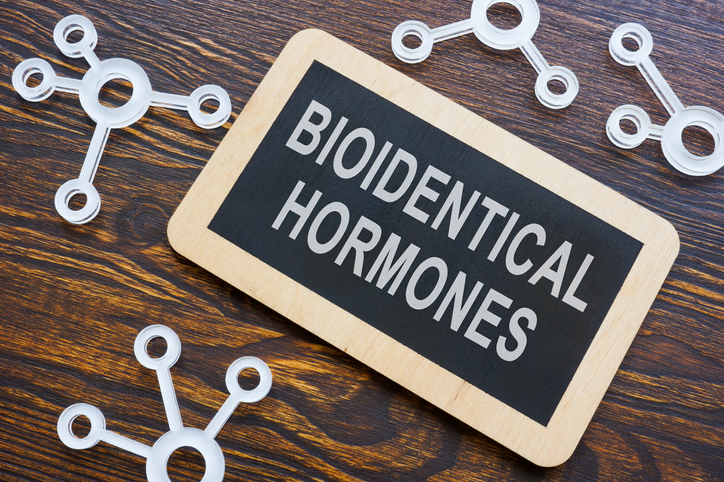Bioidentical Hormones Are Beneficial After Hysterectomy
Women frequently ask if bioidentical hormones can be used after a hysterectomy. US bioidentical expert Dr Jeffrey Dach explains here.

Women are routinely prescribed HRT after a hysterectomy, but there is an alternative.
HRT does not suit everyone, and for many years women have used bio identical creams with progesterone and oestrogen to help with their symptoms.
I thought it would be helpful to share here the views of respected international bioidentical hormone expert Dr Jeffrey Dach.
Here he explains why he recommends bioidentical hormones to his patients instead.
Should My Ovaries Be Removed?
Forty Three year old Eva sought medical advice about irregular bleeding from massive uterine fibroids. The continuous bleeding interfered with her lifestyle and caused severe fatigue from the iron deficiency anaemia.
I had previously proposed a uterine artery embolisation, but the consulting interventional radiologist instead recommended hysterectomy because the fibroids were too large for his procedure.
Eva went home, and after thinking for a few days, finally accepted she would have to undergo surgery.
Uterine fibroids are benign growths in the uterus that can grow to large size causing irregular bleeding and pressure on the abdominal organs. They are fairly common and can be detected with pelvic examination, and confirmed with pelvic sonogram and MRI scan.
Massive uterine fibroids are most commonly treated with surgery, a hysterectomy operation which removes the uterus and fibroid tumours.
Treatment is usually successful with a good outcome.
Visiting the OB Gyne Surgeon
Next, Eva paid a visit to the surgeon to discuss her operation. The surgeon recommended a COMPLETE hysterectomy with removal of both ovaries.
Sitting in the surgeon’s office, Eva timidly protested. “Why remove my ovaries?” asked Eva. The surgeon replied, “Removing the ovaries eliminates the chance of ovarian cancer, and you don’t need them anyway.”
So now Eva was again in my office asking for my opinion. Should she go against the surgeon’s advice and insist on preserving her ovaries, or should she follow the surgeon’s advice to have a COMPLETE hysterectomy with removal of the ovaries?
The ovaries are important because they are the hormone factories that pump out women’s hormones on a daily basis.
Removing the ovaries removes the source of women’s hormones causing all hormone levels to decline to low levels, immediately sending the woman into Menopause.
Should The Ovaries Be Removed?
Luckily, the answer to Eva’s question can be found in the medical literature.
William Parker MD and Cathleen Rivera MD reported that removing the ovaries is detrimental to overall health and results in increased mortality.
Dr. Parker followed 30,000 women for 24 years after their hysterectomy. Half had ovaries removed and half had ovaries preserved. The group with ovaries removed did, in fact, have a lower rate of ovarian and breast cancer.
However, this was overshadowed by a marked increase in death from heart disease and other cancers.The group with the ovaries removed had a higher all cause mortality rate, and therefore Dr. Parker recommended that women preserve the ovaries in the pre-Menopausal age group.
Dr Parker also found that postoperative hormone replacement is very beneficial at reducing heart disease risk.
In a second study, Dr Cathleen Rivera followed 1,000 Pre-Menopausal women (under age 45) after hysterectomy, and found that removal of the ovaries resulted in a disturbing 84% increase in death from heart disease.
However, if these women were given estrogen replacement after ovarian removal, they were protected with a 35% decrease in mortality from heart disease. I thought this was rather impressive.
Using Bioidentical Hormones After Hysterectomy
These two studies provide convincing evidence of the health benefits of hormone replacement after hysterectomy.
Although the patients in these two studies were given Premarin which is a natural hormone (from a pregnant horse), we find that a cocktail of bioidentical hormones including estradiol, estriol, progesterone, DHEA and testosterone works as well or better than the horse hormones.
Since all women are humans, I consider it preferable to prescribe human hormones rather than hormones from pregnant horse urine (Premarin).
What about preventing ovarian cancer and breast cancer in high risk groups?
For women at high risk with familial breast and ovarian cancer, and positive BRCA genetic markers, Dr Parker says it makes sense to go ahead with removing the ovaries for these people in high risk groups.
More information
Women needing just progesterone can supplement with Wellsprings Serenity cream but if both hormones are needed then severe symptoms usually respond best to Wellsprings 20-1 cream, which is a combination of bioidentical progesterone and two natural oestrogens with the progesterone being the largest ingredient.
It will always be a personal decision to be discussed between you and your doctor, but if you would like more information then you will find this article helpful.
https://anna.blog.wellsprings-health.com/what-hormones-do-you-need-after-a-hysterectomy-2/


















